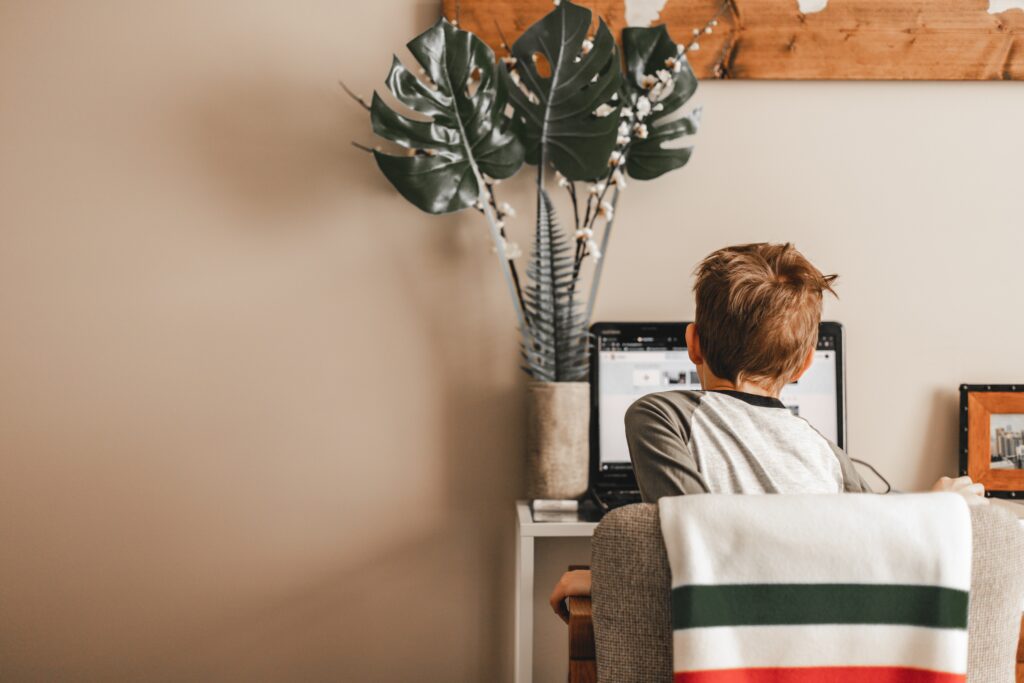Teens and Social Media
Recent studies have revealed some alarming statistics about social media use among teens and middle schoolers in America. A 2020 survey from Common Sense Media found that 70% of teens aged 12-17 had social media accounts, with the majority (60%) having more than one account. Additionally, nearly all surveyed reported using social media every day, with an average of 4 hours per day spent on social networks, messaging apps and other forms of social media. This is concerning given that the American Academy of Pediatrics recommends limiting recreational screen time to no more than 2 hours per day for children and adolescents. It suggests that many teens are exceeding recommended limits when it comes to social media usage.
The same survey also revealed interesting differences between genders: boys tended to spend more time socializing online, while girls were more likely to use social media for personal expression, such as sharing photos and stories. Additionally, girls aged 12-17 had the highest social media usage of all age groups.
The rise in social media usage among teens has increased rapidly over the past decade. As more and more middle schoolers get access to social media, parents should be aware of the potential risks that social media poses for their children. Social media can lead to a number of drawbacks for teens, including decreased emotional wellbeing.
The Downside of Social Media & Teens
Though social media can be a great way for teens to stay connected and express themselves, it’s important that parents help young people set limits on their social media consumption in order to prioritize other activities like schoolwork, outdoor recreation or quality family time. It is also important that parents provide guidance and support when it comes to social media usage by having honest conversations with their kids about the potential risks associated with spending too much time on social networks.
There is evidence that social media use can contribute to increased levels of anxiety and depression amongst teens. Studies suggest that social comparison on social networking sites can lead to feelings of low self-esteem and body image issues, as well as feelings of loneliness or isolation due to a lack of real-life social interaction. Furthermore, online bullying has been linked to cyberbullying—which can have long-term effects on teens’ social and emotional health.
Social media usage can lead to an over-emphasis on physical appearance and social acceptance amongst teens. This can create an unhealthy environment where teens feel like they must constantly strive for a perceived ideal of perfection which is often impossible to achieve—leading to further negative mental health outcomes.
Parents should take these potential cons into account when deciding what social media platforms are appropriate for their children. It’s important to balance the social opportunities social media provides with the potential risks. This may involve setting limits on social media usage and monitoring content that children are exposed to. Taking a proactive approach can help ensure teens’ social and emotional wellbeing is protected while they still enjoy the benefits of social networking platforms. In doing so, teens will be better equipped to navigate their way through social networks in a healthy and productive manner.
Creating Boundaries – Therapist’s Tips for Parents:
1. Set social media limits: Encourage teens to set limits on social media usage, such as no more than 2 hours a day or only use social media during certain times of the day.
2. Get offline: Suggest alternative activities that get teens away from devices and promote social interaction in real life, such as joining a sports team, taking up an instrument or volunteering in the community.
3. Monitor content: Make sure teens are exposed to healthy content by monitoring what they post and view on social networks.
4. Discuss potential risks: Have open conversations with teens about the potential risks associated with social media usage, such as cyberbullying and low self-esteem due to social comparison.
5. Encourage social media breaks: Suggest social media breaks throughout the day to prioritize other activities. This could include going for a walk, reading a book or doing something creative.
6. Model healthy social media use: Demonstrate how social networks can be used responsibly and safely by setting an example with your own social media behaviour.
7. Seek professional help if needed: If you are concerned that social media is having a detrimental impact on your teen’s wellbeing, seek professional help from a mental health specialist.
By following these tips, parents can ensure their teens have a balanced lifestyle while still enjoying the benefits of social network platforms like sharing photos, stories, and being connected to peers.
If you’re concerned about your teen’s social media use; we’re here to help. At GroundWork Counseling, our trained CBT therapists can help your teen and family create a social media balance to improve social and emotional wellbeing.
Speak With An Orlando Teen Therapist
407-378-3000



